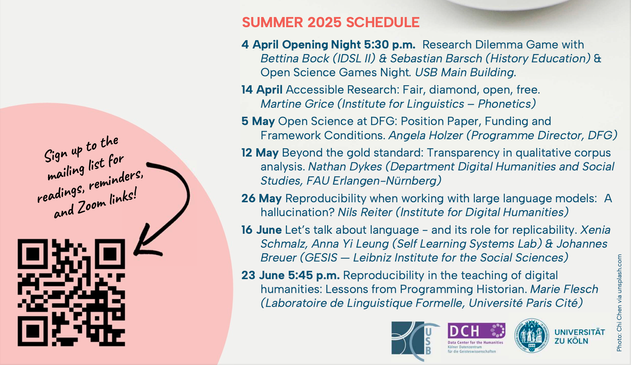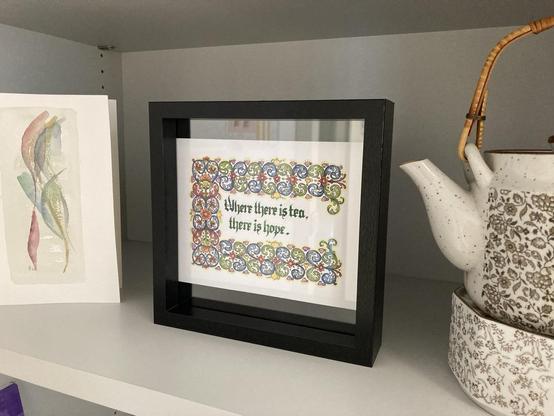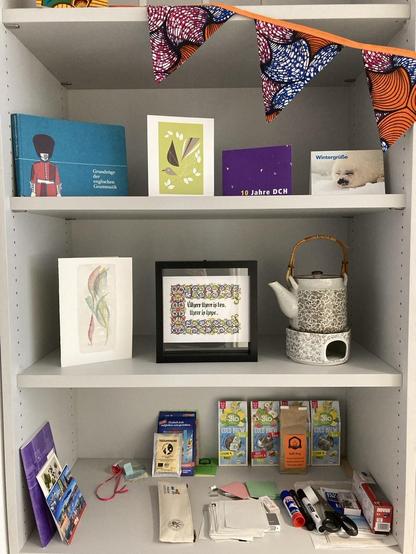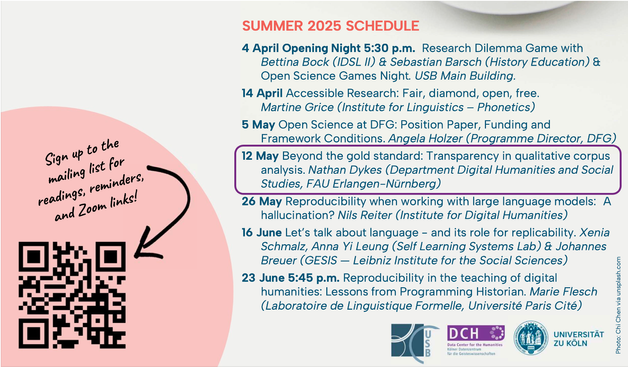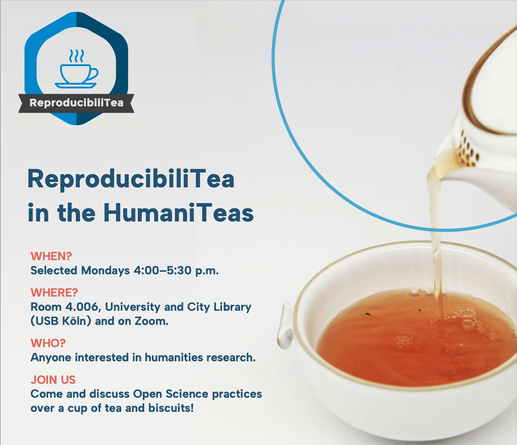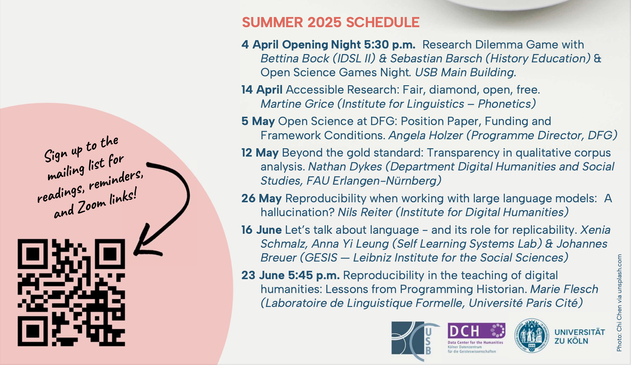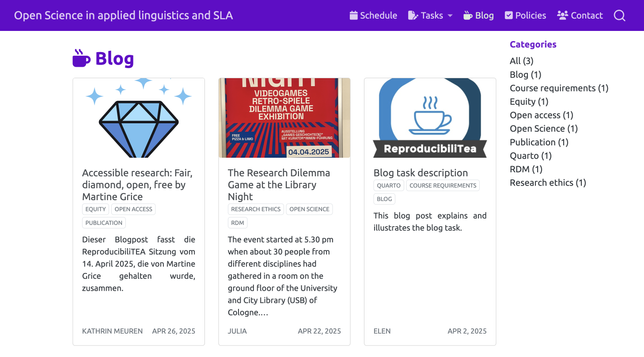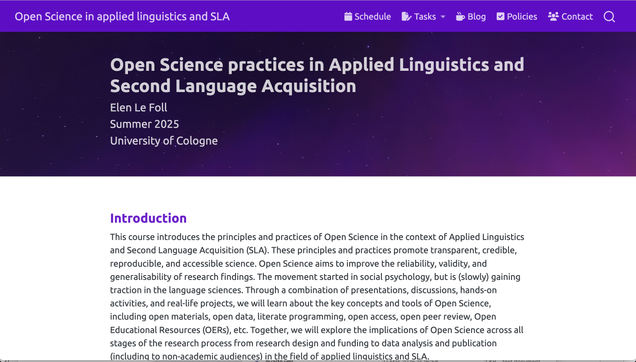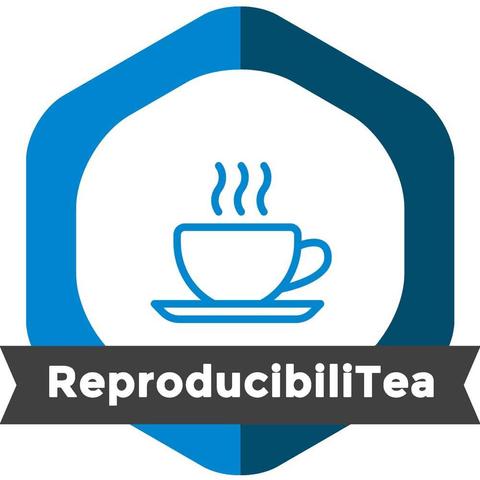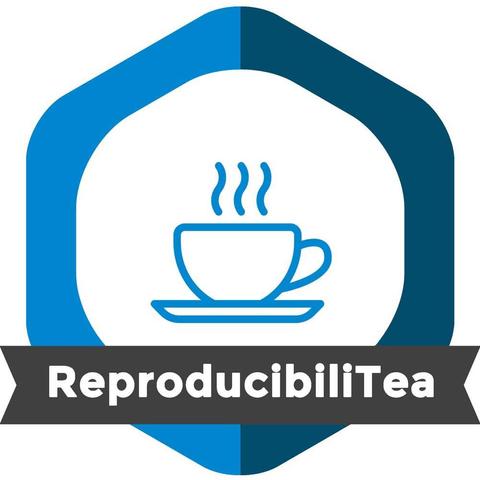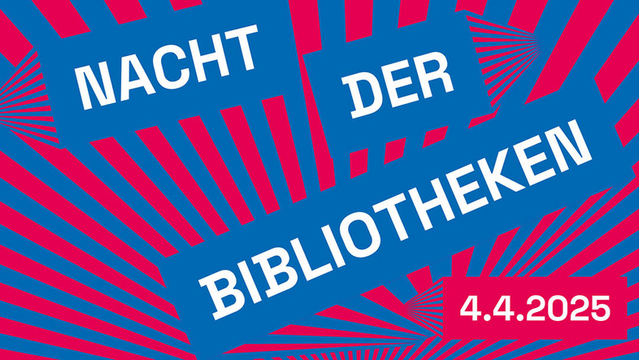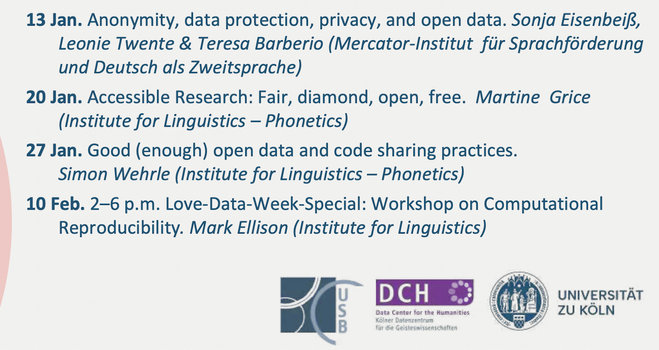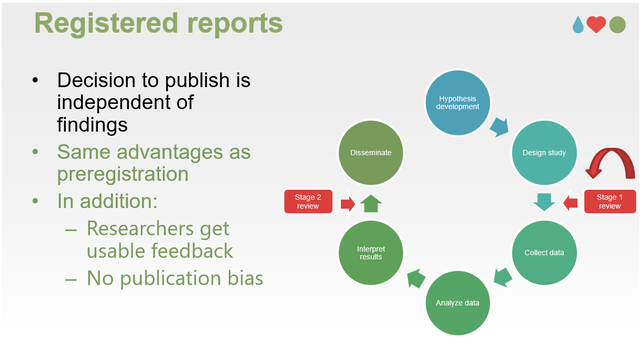TODAY (Mon 16 June) at 16:00 CEST, we are delighted to welcome not one, not two, but three guest speakers to #ReproducibiliTea in the HumaniTeas: @xenia_ks and Anna Yi Leung (both from the Self Learning Systems Lab of the University of Cologne) and @JohannesBreuer (from GESIS—Leibniz Institute for the Social Sciences, Cologne)! ☀️
They will lead a session on the role of language and its role for #replicability based on their recently published short paper (https://doi.org/10.1057/s41599-025-04381-2). 📖
As usual, you can join us in Cologne @unibibkoeln for a cuppa or via Zoom (join our mailing list to get the link: https://lists.uni-koeln.de/mailman/listinfo/reproducibilitea-humaniteas). 🫖 #OpenScience #academia #linguistics @johannesbreuer.com
